Private, online and hi-tech: the coronavirus economy
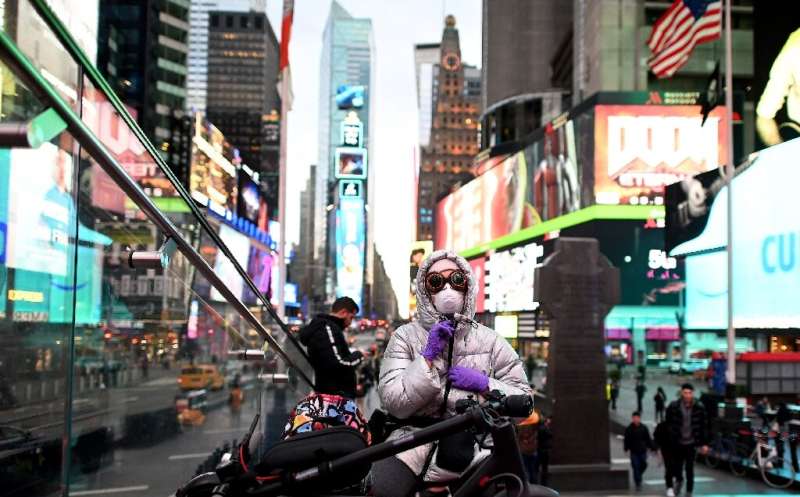
The coronavirus pandemic has sent stock markets into freefall and industries to the wall, however many firms enabling more private, online and tech-based living are emerging as potential winners.
As hundreds of millions of people worldwide are forced to stay in their homes and not travel abroad, the businesses that are helping them to adapt could lead to long-term changes in the economy.
"I think certain aspects of work and organising will change for good through the current situation," said Sally Maitlis, a professor of organisational behaviour at Oxford University's Said Business School.
"People will discover that they can work and communicate in ways they previously didn't think possible, and will be forced to become more nimble with tech through having no choice to do otherwise."
Here are comparisons of several sectors that are thriving and failing in the pandemic:
E-commerce giants vs independent stores
Large online retailers have seen a surge in orders as self-isolating or home-working consumers turn to their massive distribution and delivery networks to provide daily essentials.
Shares in US retail giants Walmart and Amazon both tumbled as markets crashed around the world on March 16.
During the week Walmart rose as much as 25 percent from its nine-month low on Monday. Amazon also recovered.
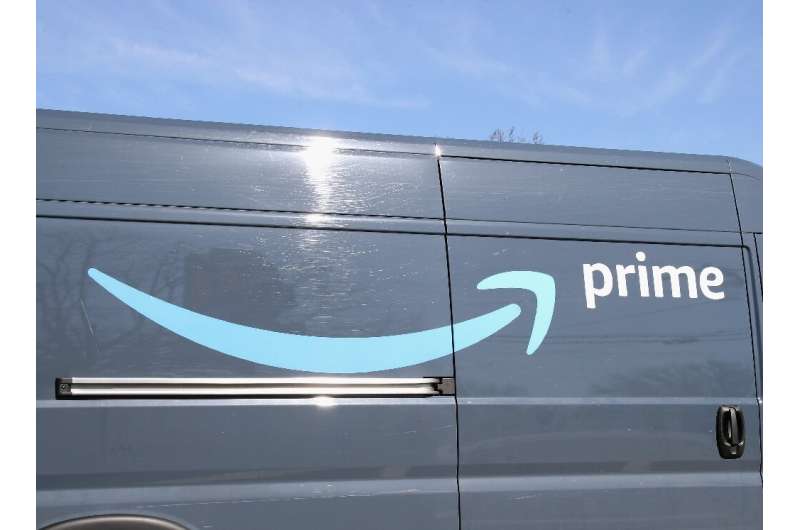
"We are seeing increased online shopping and as a result some products such as household staples and medical supplies are out of stock," Amazon said.
Yet small, independent stores are suffering, said UK Federation of Small Businesses chair Mike Cherry.
"These are already very difficult times for all small businesses right across the country. There are huge concerns over supply chains while on top of this footfall continues to drop. The prospect for these businesses over the coming weeks is increasingly bleak."
Streaming vs cinemas
Demand for movies to watch at home has soared so much that Netflix and YouTube are reducing the quality of their streaming in Europe—which has become the epicentre of the virus—to ease pressure on the internet.
Worldwide streaming activity jumped by 20 percent last weekend, according to Bloomberg News.
Traditional cinema chains, however, are facing an unprecedented drop in demand.
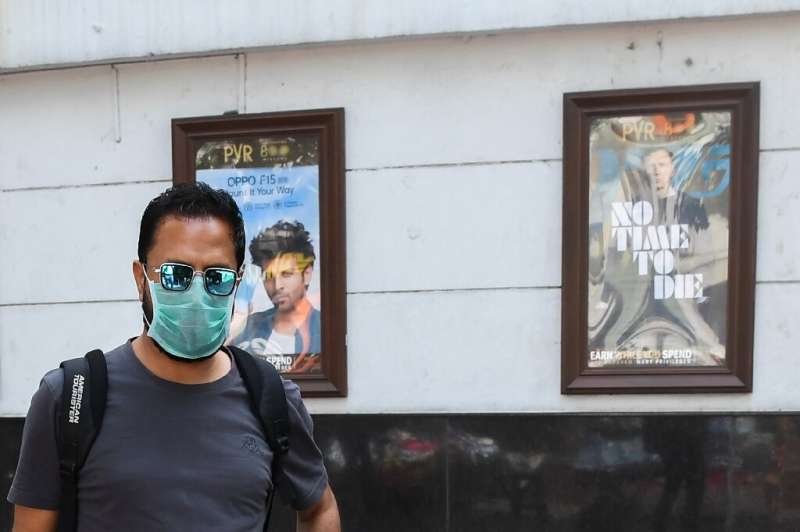
Some have temporarily closed their doors to help contain the virus's spread.
US-listed shares in Cinemark and AMC Entertainment were both down around 60 percent on Friday from their respective highs in January and February.
Private jets vs commercial planes
The airline sector has been hit hard by quarantine rules and border closures, with UK airline Flybe crashing into bankruptcy and experts predicting others will follow.
The International Air Transport Association said Thursday that up to $200 billion is needed to rescue the global industry.
US airlines have sought more than $50 billion in government assistance in recent days, with one top US official saying the outbreak poses a bigger threat to the commercial industry than the September 11 attacks.
In contrast, private jet charter companies are seeing demand soar.
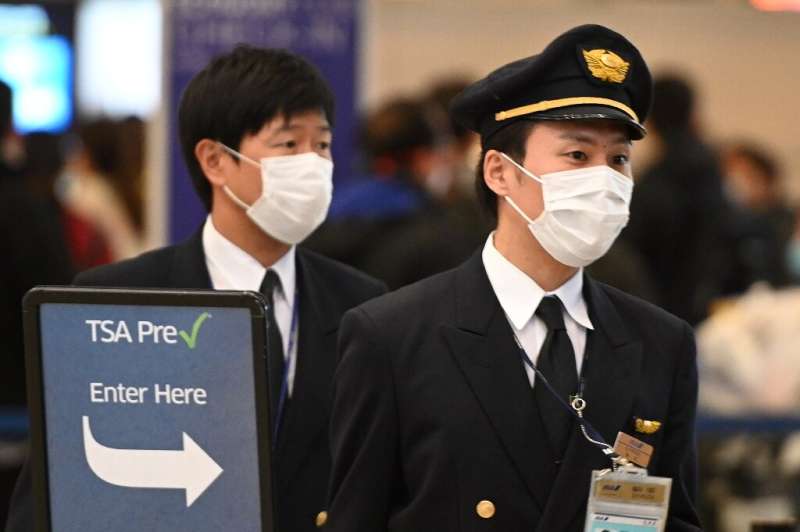
Wealthy customers are seeking to distance themselves from the "unknown" travel histories of fellow passengers, said Daniel Tang, from Hong Kong-based charter company MayJets.
US-based Paramount Business Jets has seen inquiries go "through the roof", its chief executive Richard Zaher said.
Queries have risen 400 percent and bookings are up 20-25 per cent.
Home workouts vs gyms
As many gyms close their doors, fitness-lovers are turning to online classes and home workouts.
Shares in US home gym equipment company Peloton surged as investors bet on increasing demand for its stationary exercise bikes and memberships to streaming online workout sessions.
At one stage Peloton's share price was up more than 50 percent from Monday's intra-day low.
Teleconferences vs real world meetings
With more and more people working from home to limit the virus's spread, demand for technology that enables online group meetings, chats and collaborations has spiked.
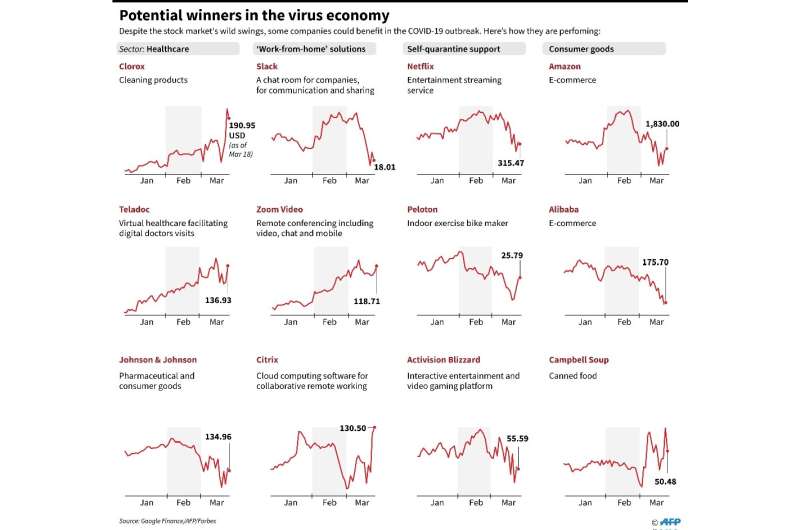
"There is such excitement around remote work that brands like Zoom have seen their stock value climb up," Creative Strategies analyst Carolina Milanesi said, referring to the teleconferencing app.
At the same time, real world gatherings from sporting events to business conferences, have been postponed or cancelled, with a large question mark still lingering over the fate of this summer's Olympic Games in Japan.
© 2020 AFP





















